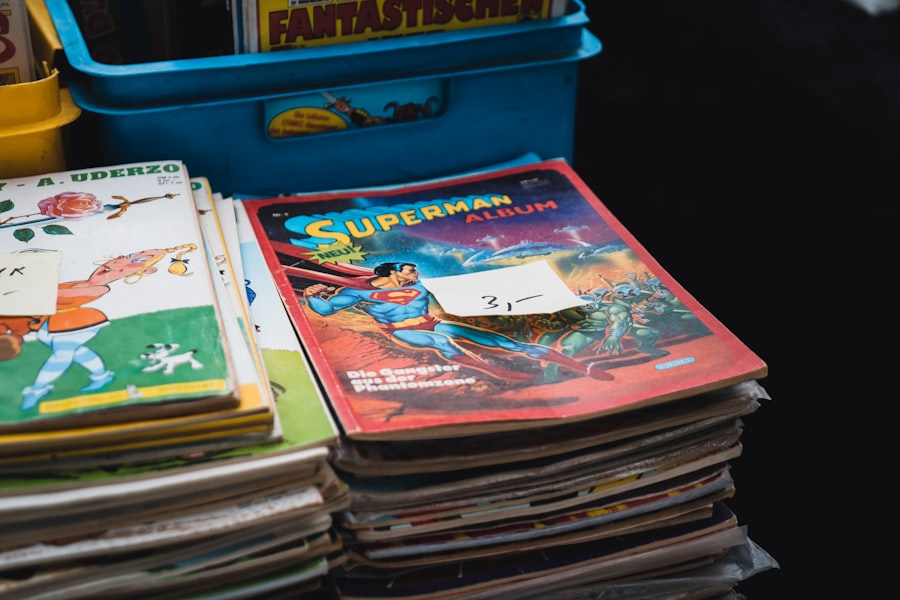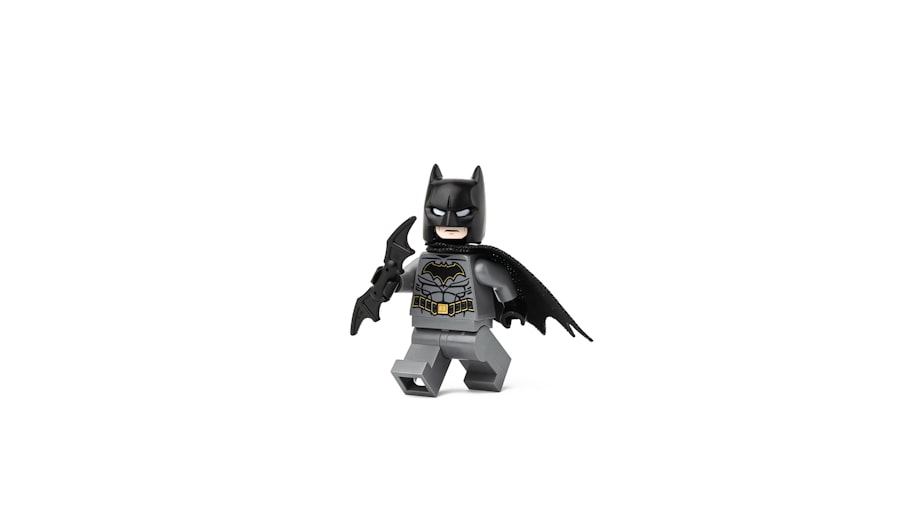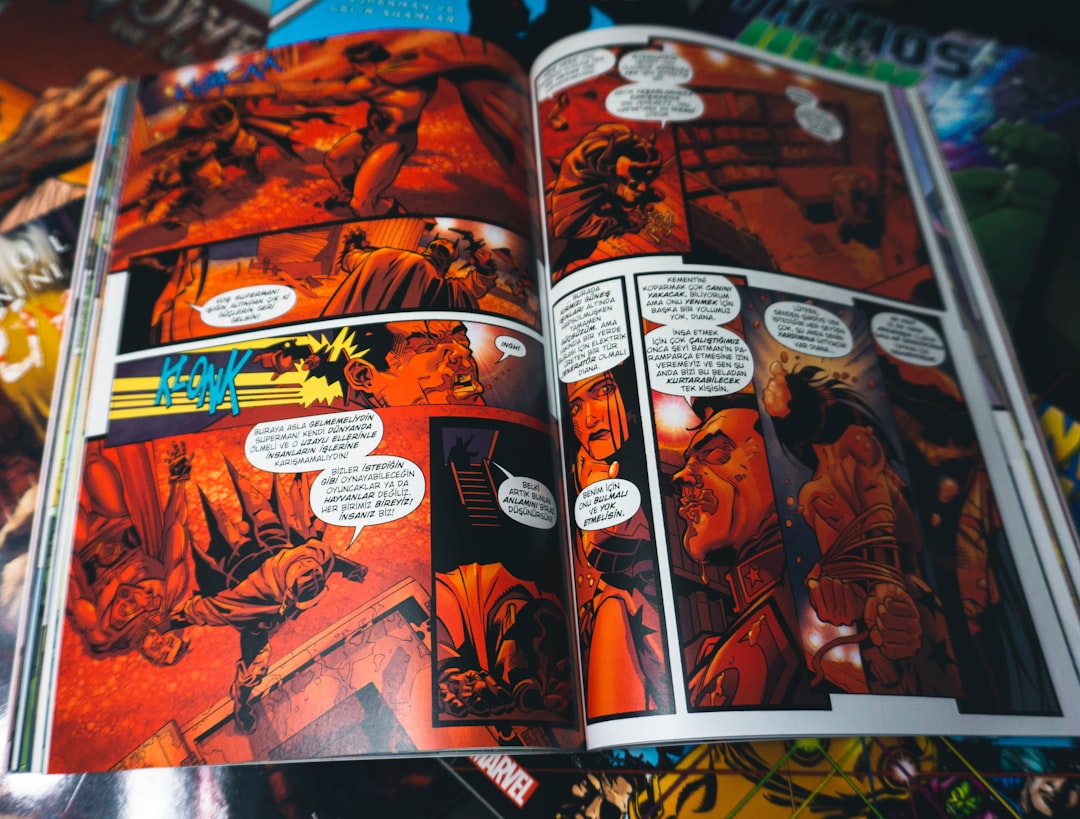As a lifelong fan of comic books and their cinematic adaptations, I find myself constantly drawn to the rich tapestry of storytelling woven by both DC and Marvel. Each universe offers a unique lens through which we can explore complex themes, moral dilemmas, and the human experience. The storytelling techniques employed by these two giants of the comic book industry not only shape their narratives but also define their characters, making them resonate with audiences across generations.
In this article, I will delve into the intricacies of storytelling and character development in both DC and Marvel, examining how these elements contribute to their enduring popularity and cultural significance. The contrast between DC and Marvel is often highlighted in discussions about their respective approaches to storytelling. While both universes feature iconic heroes and villains, the way they construct their narratives and develop their characters sets them apart.
I aim to explore these differences, shedding light on how each company has crafted its own identity through storytelling techniques and character arcs. By analyzing the narrative structures, world-building, and character evolution in both DC and Marvel, I hope to provide a comprehensive understanding of what makes each universe unique and beloved by fans worldwide. bio sites are a great way to centralize all of your online content.
Key Takeaways
- Both DC and Marvel employ unique storytelling techniques and character development to engage audiences.
- DC’s narrative structure, plot development, and world-building are key elements in its storytelling approach.
- Marvel’s storytelling techniques focus on character arcs, thematic elements, and intricate storytelling.
- DC’s iconic superheroes and villains are known for their depth, complexity, and evolution over time.
- Marvel’s beloved characters are characterized by their growth, relationships, and moral dilemmas.
Storytelling in DC: Examining the narrative structure, plot development, and world-building in DC comics and movies
DC’s storytelling often leans towards a more mythic and grandiose approach. The narratives frequently draw upon archetypal themes, such as good versus evil, sacrifice, and redemption. I find that this mythic quality is particularly evident in the stories of characters like Superman and Wonder Woman, who embody ideals that transcend mere human experience.
The narrative structure in DC comics tends to be linear, allowing for a clear progression of events that often culminates in epic confrontations between heroes and villains. This straightforward approach can be refreshing, as it allows readers to immerse themselves fully in the unfolding drama without getting lost in convoluted plot twists. World-building is another area where DC excels.
The creation of iconic locations like Gotham City and Metropolis adds depth to the narratives, making them feel more immersive. I appreciate how these settings are not just backdrops but integral to the stories themselves. Gotham’s dark, brooding atmosphere reflects the struggles of its inhabitants, while Metropolis represents hope and progress.
Storytelling in Marvel: Analyzing the storytelling techniques, character arcs, and thematic elements in Marvel comics and movies

In contrast to DC’s mythic storytelling, Marvel often embraces a more grounded approach that resonates with contemporary issues. The narratives frequently explore themes of identity, responsibility, and the consequences of power. I find that Marvel’s characters are often portrayed as flawed individuals grappling with their own personal demons, which adds a layer of relatability that is hard to ignore.
For instance, Spider-Man’s struggles with balancing his superhero duties with his everyday life reflect the challenges many of us face in our own lives. Marvel’s storytelling techniques also emphasize interconnectedness. The Marvel Cinematic Universe (MCU) has masterfully crafted a shared universe where characters from different franchises interact and influence one another’s stories.
This interconnectedness creates a sense of continuity that keeps me engaged as a viewer. The character arcs are often intricately woven together, allowing for rich development over time. For example, Tony Stark’s evolution from a self-centered billionaire to a self-sacrificing hero is a testament to Marvel’s ability to create compelling character journeys that resonate deeply with audiences.
Character development in DC: Discussing the depth, complexity, and evolution of iconic DC superheroes and villains
When it comes to character development, DC has produced some of the most iconic superheroes and villains in comic book history. Characters like Batman and Lex Luthor exemplify the complexity that can arise from their contrasting ideologies. Batman’s relentless pursuit of justice is often tempered by his own inner demons, while Lex Luthor’s genius is overshadowed by his obsession with power.
I find that this depth adds layers to their personalities, making them more than just archetypal figures; they become relatable characters with whom I can empathize. Moreover, DC has shown a remarkable ability to evolve its characters over time. The evolution of Wonder Woman from a symbol of empowerment to a multifaceted hero grappling with her own identity is a prime example of this growth.
I appreciate how DC has allowed its characters to adapt to changing societal norms while still remaining true to their core values. This evolution not only keeps the stories fresh but also reflects the ongoing dialogue about gender roles, morality, and heroism in our world.
Character development in Marvel: Comparing the character growth, relationships, and moral dilemmas of beloved Marvel characters
Marvel’s approach to character development is equally compelling but often focuses on the relationships between characters as a driving force for growth. The dynamics between heroes like Captain America and Iron Man illustrate how differing ideologies can lead to conflict but also foster growth. Their relationship serves as a microcosm for larger societal debates about freedom versus security, making their struggles feel relevant and timely.
I find that these moral dilemmas add depth to their characters, allowing me to engage with their journeys on a more personal level. Additionally, Marvel excels at portraying the complexities of friendship and camaraderie among its heroes. The Avengers’ interactions highlight how teamwork can lead to personal growth while also showcasing individual vulnerabilities.
For instance, Thor’s journey from arrogance to humility is beautifully depicted through his relationships with other characters like Loki and Jane Foster. These connections not only enhance character development but also create emotional stakes that resonate with me as a viewer.
Impact on audience: Exploring how the storytelling and character development in DC and Marvel resonate with fans and influence popular culture

The impact of DC and Marvel’s storytelling on audiences cannot be overstated. Both universes have cultivated dedicated fan bases that span generations, each finding something unique within the narratives and characters they offer. I have witnessed firsthand how these stories have sparked conversations about morality, justice, and what it means to be a hero.
The themes explored in both DC and Marvel resonate deeply with fans, often prompting us to reflect on our own lives and values. Moreover, the influence of these comic book giants extends beyond their pages and screens into popular culture at large. From merchandise to cosplay events, the characters have become cultural icons that inspire creativity and community among fans.
I find it fascinating how both DC and Marvel have managed to create universes that not only entertain but also foster connections among people who share a love for these stories. This sense of belonging is one of the most significant impacts these narratives have had on audiences worldwide.
Summarizing the strengths of DC’s storytelling and character development compared to Marvel, and acknowledging the impact of both on the comic book industry
In summarizing my exploration of storytelling techniques and character development in both DC and Marvel, it becomes clear that each has its strengths that appeal to different aspects of our human experience. DC’s mythic storytelling and rich world-building create an epic backdrop for its characters’ journeys, while Marvel’s grounded narratives emphasize personal growth and moral dilemmas that resonate with contemporary audiences. Both approaches have contributed significantly to the comic book industry, pushing boundaries and inspiring new generations of creators.
While I appreciate the distinct qualities each universe brings to the table, I recognize that both DC and Marvel have played pivotal roles in shaping modern storytelling within comics and film. Their ability to evolve alongside societal changes ensures that they remain relevant while continuing to captivate audiences around the globe.
Future of DC and Marvel: Speculating on the potential for continued growth and innovation in storytelling and character development for both comic book giants
Looking ahead, I am excited about the potential for continued growth and innovation in storytelling from both DC and Marvel. As societal norms shift and new voices emerge within the industry, I believe we will see fresh perspectives that challenge traditional narratives while still honoring the legacies of these beloved characters. The rise of diverse creators offers an opportunity for both universes to explore untold stories that reflect our increasingly complex world.
With the rise of virtual reality experiences and interactive narratives, I envision a future where fans can engage with these worlds in unprecedented ways. As both DC and Marvel continue to push boundaries in storytelling and character development, I am eager to see how they will adapt to meet the expectations of an ever-evolving audience while remaining true to their roots as pioneers in the comic book industry.
If you’re a fan of comparing the power levels of iconic characters, you might also enjoy reading A Clash of Titans: Is Godzilla More Powerful Than Superman?. This article delves into the debate of who would come out on top in a battle between the King of the Monsters and the Man of Steel. It’s a fascinating exploration of the strengths and weaknesses of these two legendary figures in pop culture.
FAQs
What is the article “DC Is Better Than Marvel – Storytelling Analysis & Character Development Comparison” about?
The article provides an analysis of storytelling and character development in DC and Marvel comics, arguing that DC excels in these areas compared to Marvel.
What criteria are used to compare storytelling and character development in DC and Marvel comics?
The article compares the depth of storytelling, character arcs, emotional impact, and overall coherence of the narrative in both DC and Marvel comics.
What are some examples of storytelling and character development in DC comics that are highlighted in the article?
The article may discuss iconic storylines such as “The Dark Knight Returns,” “Watchmen,” or character development arcs like Batman’s journey from vengeance-driven vigilante to a symbol of hope and justice.
What are some examples of storytelling and character development in Marvel comics that are highlighted in the article?
The article may discuss iconic storylines such as “The Infinity Gauntlet,” “Civil War,” or character development arcs like Spider-Man’s growth from a struggling teenager to a mature and responsible hero.
Does the article provide a balanced analysis of DC and Marvel comics, or does it show bias towards DC?
The article may present a subjective viewpoint favoring DC over Marvel in terms of storytelling and character development. However, it should strive to provide evidence and examples to support its claims.
What impact does storytelling and character development have on the overall quality of comic book narratives?
Effective storytelling and well-developed characters can enhance the emotional resonance of a comic book, create a more immersive experience for readers, and contribute to the longevity and cultural impact of the comic book medium.
